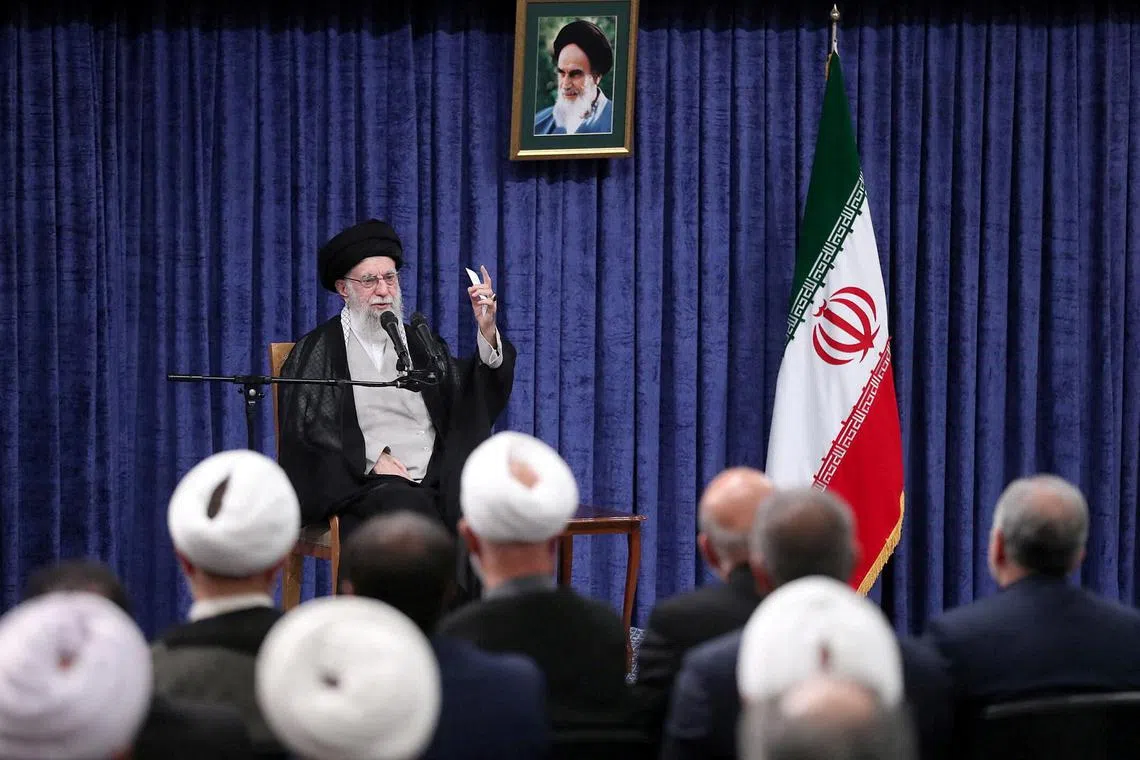Iran’s Khamenei bemoans low oil production
Sign up now: Get ST's newsletters delivered to your inbox

Iran's Ayatollah Ali Khamenei told Cabinet members on Sept 7 that the country's oil production methods were old.
PHOTO: REUTERS
- Ayatollah Khamenei criticised Iran's low oil production, citing outdated methods and tools compared to other oil-rich regions.
- Western sanctions, particularly from the US since 2018, have crippled Iran's oil industry, necessitating diversified export markets beyond China.
- Despite strained relations and disrupted nuclear talks, Iran signals openness to diplomacy, with Foreign Minister Araghchi calling for "an honest conversation." (AFP)
AI generated
TEHRAN – Iran’s Supreme Leader, Ayatollah Ali Khamenei, on Sept 7 bemoaned his country’s oil production levels and called for the diversification of its export markets as Tehran faces renewed pressure from the West.
“Oil production in the country – with the importance it has in the economy, which is obvious – is low,” Mr Khamenei said in a meeting with Cabinet members.
“Our oil production methods are old methods; the tools are old... We are behind many of the oil-rich regions of the world.”
Iran’s oil industry has been under crippling Western sanctions since the US withdrew from the 2015 nuclear deal in 2018 under US President Donald Trump in his first term.
Since returning to office, Mr Trump has pursued a “maximum pressure” strategy against Iran to cripple its economy.
Mr Khamenei also called for “more dynamism” on oil exports, stressing the need for multiple and diverse customers, with China still the dominant buyer of Iranian oil.
About 92 per cent of Iran’s oil is destined for the Asian giant, often at significant discounts, according to the Iranian media.
Relations with Europe have also deteriorated over Iran’s nuclear programme. In August, Britain, France and Germany triggered the so-called “snapback” mechanism under the 2015 nuclear deal to reimpose UN sanctions.
Iran halted cooperation with the International Atomic Energy Agency – the UN’s nuclear watchdog – following a 12-day war with Israel, during which the US and Israel struck key Iranian nuclear facilities.
The conflict disrupted nuclear talks between Tehran and Washington aimed at reaching a new deal.
Foreign Minister Abbas Araghchi, in an op-ed published in The Guardian on Sept 7, said Tehran remains open to diplomacy and “there is still time – and a dire need – for an honest conversation”. AFP


